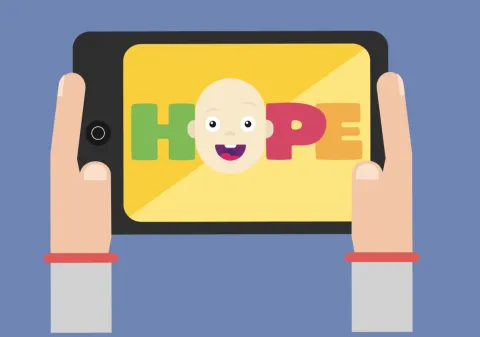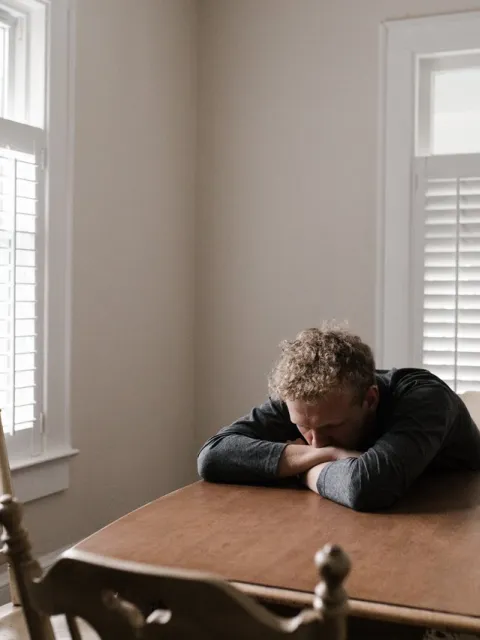Motivating young cancer patients to become superheroes
In Portugal, about 400 children and adolescents under 18 years are diagnosed with cancer every year. To help young cancer patients and their parents face some of the challenges, Hernâni Zão Oliveira launched the HOPE project.

Coping with a cancer diagnosis can be overwhelming for anyone. For children, it comes with particular challenges. Instead of going to school and being with friends, they may have to suddenly cope with surgery or other treatments forcing them to spend weeks or even months away from their homes. Especially younger children might be very affected by the change in their daily routine. Parents often feel unequipped to accompany their children through this experience. In this interview, Hernâni Zão Oliveira, PhD candidate at the Portuguese Institute of Oncology shares his insights and practices.
Can you tell us more about your project and how it will help children living with cancer?
The main objectives are to alleviate the anxiety of children living with cancer and to increase their physical activities. I witness on a daily basis, many young patients suffering from low self-esteem. They do not exercise enough so their bodies cannot respond sufficiently well to treatments like chemotherapy. Based on feedback from over 80 children living with cancer and cancer survivors, we developed a video game that explains essential facts about cancer and the treatment in a playful way adapted to children mainly between the ages of 6 and 12 years.
Example of the HOPE project App: 'Exergaming' encourages physical activity
The video game tells the story of a child who fights cancer as a superhero would fight against his enemies. The superhero has to go through all the treatments and the medical routine that our children are facing as well. When a child plays the video game, he or she has to help the superhero by hitting certain targets such as virtually collecting blood from the superhero or accompanying him to radiotherapy. In order to achieve this, the player has to perform certain movements recommended by a physical therapist that is captured by a camera and then translated into scores. Thus, the game not only helps the children understand what the superhero is experiencing but also requires them to exercise while their playing.
It also alleviates fear. Back in real life, our nurses know the game. When they then have to take a blood sample, they tell the child, look, now you are the superhero and the child will be more focused and remain calm as the superhero does in the video game.
We piloted the video game with 74 children and were able to document a 63 per cent decrease in their anxiety crises and an 80% increase in their knowledge about cancer. Based on their feedback we have developed a new prototype. We want to make it available at hospitals across Portugal and also as a download for private purchases.
Teaching children how to proceed during radiography
Are you also supporting parents?
Yes, they play a crucial role during the treatment and children will be less stressed if they feel that their parents cope well. Seeing their child suffer is obviously very difficult for parents and they might become anxious. Sometimes they even feel guilty thinking cancer could be their fault.
We, therefore, developed an App that explains certain topics more in-depth for adults and gives parents tips and instructions on how to deal with certain situations. Parents of cancer survivors helped us build the App. It is complementary to the video game, intended to engage parents in a positive way. We wanted to avoid that they turn to non-official resources on the internet instead.
The instructions include for example ideas, on how to prepare a room for a child with cancer, recipes for an adapted diet during treatment and guidance on how to handle “school phobia”. We used simple infographics, avoided medical jargon as much as possible and made the App very interactive.
You mentioned “school phobia”. Do young cancer patients frequently experience that?
During the research for my projects, I talked to several psychologists and to more than 80 children and young people. A majority of them told me about their fears of returning to school after treatment. Many had experienced bullying due to hair loss, weight increase or misconceptions about cancer.
A survey that we conducted in different schools across the country revealed that ten per cent of the students in coastal areas thought cancer was a contagious disease. In more remote rural areas, the figure was as high as 30%. In both areas, school children thought cancer could be caused by the flu.
We, therefore, developed a video called “My brother is a superhero” that explains the nature of cancer and the treatment in an easy to understand language to schoolchildren. We tested it with 625 children in four schools and were able to significantly increase the understanding of cancer. We tested this in group discussions and through a follow-up survey.
The video also helped lift a taboo around cancer. Some teachers did not want to or did not know how to talk about it because they had a personal difficult experience with the disease. Their parents might have died from it or they had cancer themselves. The film made it easier for them to bring up the issue in class and thus to help a student patient reintegrate school after treatment.
For me personally this project is very important. Besides my professional career in oncology, I am a cancer survivor myself and know what it means to face this disease. I sincerely hope that the tools we developed can help children, parents and teachers in countries as well.
Hernâni Zão Oliveira's projects in the field of breast cancer and pediatric oncology have been awarded with several prizes, among them the 2017 Astellas Oncology C3 Prize.
If you are interested in finding out more about the HOPE project or want to adapt the tools to your context please contact Hernâni Zão Oliveira (+351968143004) or one of his partner organisations.
- Laclis – Creative Lab for Health Literacy from the University of Porto at laclis.lab@mil.up.pt
- BRIGHT – Beyond Research and Information Graphics for Health and Technology at geral@brightdigital.pt
Last update
Thursday 30 January 2020
